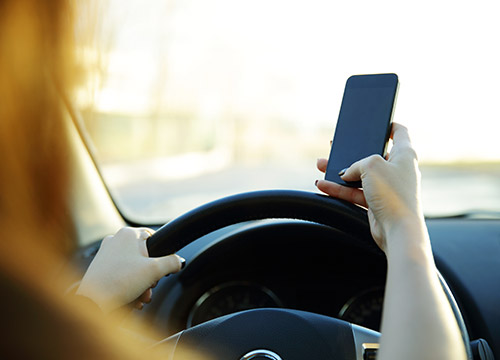Employers Should Protect Themselves from Texting Lawsuits
By Andy Tiwari

Texting while driving: we have all probably done this more than we’d like to admit. Usually it involves texting a quick update with one hand while rushing somewhere in a car or replying to text messages behind the wheel at a stoplight.
In recent years, texting while driving has received a lot of bad press due to the distractions it poses for drivers. Prominent talk show hosts have made celebrities pledge publicly they won’t do it, and large wireless service providers have partnered in the “It Can Wait” campaign to discourage the practice. In San Antonio, you’ve probably noticed the signs banning texting (and cell phone use) while driving in school zones.
Texting while driving cases are also being challenged in the legal system. In November 2013, a lawyer for a Florida couple dropped an appeal involving New Jersey’s texting while driving law. We’ve traditionally assumed that the recipient who looks at or responds to a text message is the party responsible for any accident caused, but the plaintiffs’ attorney argued that the couple’s injuries had been caused both by the receiver of the text and the person who sent the text.
The case went all the way to the New Jersey state appeals court, which decided that they didn’t see enough evidence to support further analysis of whether the text sender could be held responsible in this specific case. The court also didn’t see enough evidence to show that the person sending the text knew the recipient was driving. The court effectively left the door open for other plaintiffs with the right evidence to consider a claim against the sender of the text that ultimately distracts a driver.
Cases like this will continue to be challenged, and we frankly don’t know how a similar case might proceed in a Texas court. But to minimize business risk and potential liability, employers need to recognize this could be an issue they encounter.
Vicarious liability (holding the employer responsible for acts of an employee) already exists in Texas and could apply if employees drive as part of their job. But the newer concern is whether there is liability if an employee is simply on his or her way to work. For example, if a supervisor tells an employee not to be late to a meeting through a text (or email by phone) and that employee causes a serious accident, is it possible that the supervisor and the employer could both be deemed legally liable for damages related to the accident? That’s what a plaintiff might argue, especially if the supervisor knew, for example, that the employee was driving at the time the message was sent. Even if such a case was later dismissed, an employer might have to pay legal fees or increased insurance costs.
Instead of putting that scenario to the test, why not include company prohibitions against texting while driving on the job, reading or responding to employer texts in employee handbooks or company policies?
Supervisors and directors should also be made aware that, absent further guidance from Texas courts, there is a risk that they and the company could be liable if an employee is involved in an accident while responding to their text. While there’s no such thing as perfect protection from lawsuits, small steps like this can help.
Texting cases are becoming more popular and it’s best to confront this issue now before your company becomes the next headline.
If you need legal advice, schedule a meeting with Tiwari + Bell PLLC through our website or by calling (210) 417-4167
